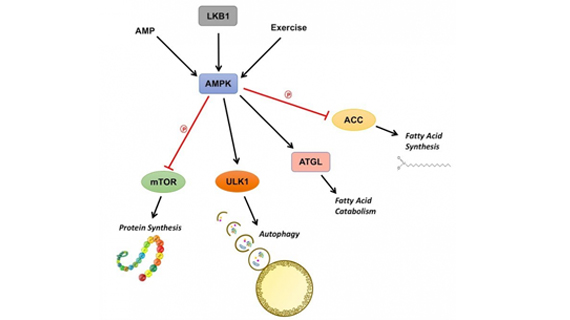Special Personalized Physical Exercise
Personalized exercise for cancer patients and survivors of the disease
Mobility and exercise are also important parts of a doctor's and supportive care for a cancer patient. Exercise is necessary if we really want to offer the best to our patient. Lack of exercise plays an important role in the diversion of the cell in the direction of neoplastic disease.
Sedentary lifestyle for more than a few days does not maintain the activity of the enzyme AMRK. The stimulation of AMRK, which is stimulated by fatigue and food deprivation, pushes the cell in the direction of "maintenance-repair", ie in biological behavior that, in the morbid dimension, opposes cancer, while in the healthy dimension prevents diversion to cancer. Once cancer is established, exercise alone is not enough to stop it, but, it is essential for the successful outcome of all other treatments.
The ΑΜΡΚ system is normally stimulated by proper nutrition (which periodically and controlledly increases AMP) and exercise. Its stimulation results in autophagy, a remedial mechanism, analogous to apoptosis, and inhibition of the mTOR system. The same system is used to inhibit carcinogenesis in at least two organs, the lung and the uterus, through the enzyme LKB1.
Exercises that are suitable for cancer patients should be chosen with knowledge and prudence by specialized trainers, in collaboration with therapists.HeSPO has partnerships with appropriate gyms in Athens and Thessaloniki, for the integrated and personalized exercise, which will help the cancer patient to maintain the functionality of its members after the surgery, and to "Annoy" his cancer, diverting the metabolism to it. "Maintenance-repair". In addition, stimulation of the endocannabinoid and endorphin system with exercise has been found to to increase resistance to chemotherapy and greatly improve psychology.
Exercise also helps to properly utilize the calories of food to treat cancer cachexia. Proper aids (dietary supplements and cannabinoids) play an important role in controlling cancer anorexia and cachexia.

The importance of the AMPK system is also shown by its association with hepatic kinase LKB1, which is found mutated in 35% of non-small cell lung cancers and 20% of cervical cancers.
Why in Personalized Oncology?
With personalization in oncology we are able to revive the patient's hope.
While we do not despise the therapeutic means of conventional oncology, on the contrary, we enrich the treatment....
More

